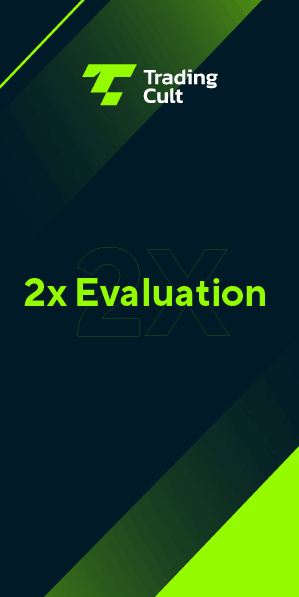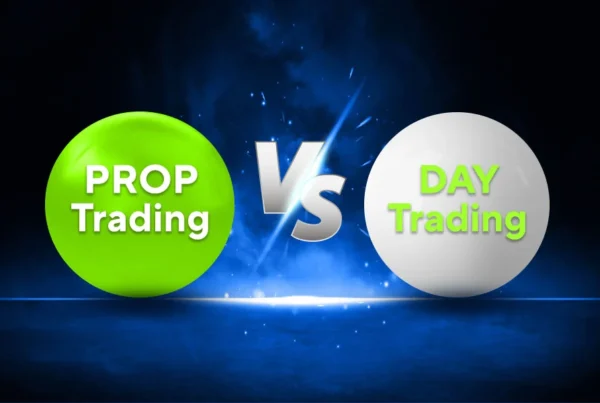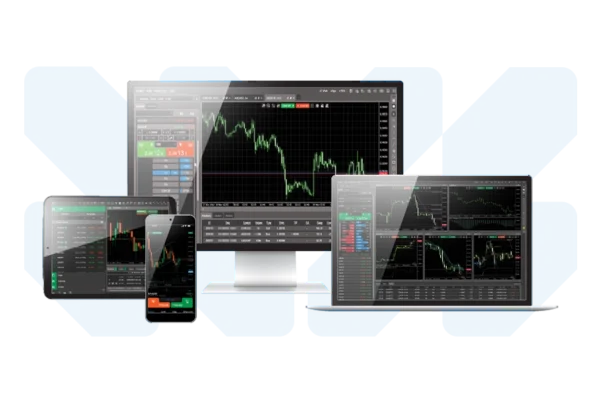
Do you dream of financial independence and the freedom to be your own boss? The world of trading can help you turn those dreams into reality. But with so many options, where do you even begin? Two prominent paths emerge—forex trading and proprietary trading (prop trading). Each offers unique advantages and drawbacks, and the right choice depends on your individual circumstances and goals.
The Thrill of the Forex Market
Forex trading, short for foreign exchange trading, is the exciting realm of buying and selling currencies. Imagine a vast, decentralized market where individuals from all walks of life speculate on the ever-changing values of global currencies. Here’s what makes forex trading stand out:
Accessibility: It’s relatively easy to get started. All you need is a brokerage account and some initial capital.
Flexibility: Trade 24/5! The forex market operates around the clock, offering round-the-clock opportunities.
Potential for High Returns: With high leverage and volatility, forex trading can yield significant profits if you play your cards right (and have a bit of luck!).
However, before you take the plunge, be prepared for:
Significant Risk: The fast-paced, volatile nature of forex means you can lose money just as quickly as you can make it. Be prepared for a rollercoaster ride.
Self-Driven Learning: Success in forex often hinges on rigorous self-education and a willingness to develop a solid trading strategy.
Prop Trading: Trade with Someone Else’s Capital
Prop trading offers a different approach. In this model, you trade using a proprietary trading firm’s capital. The firm takes on most of the risk, and in return, you share a percentage of your profits with them. Here’s what makes prop trading unique:
Reduced Financial Risk: Since you’re not trading with your own money, the financial pressure is (somewhat) lessened.
Training and Mentorship: Reputable prop firms often provide valuable educational resources and guidance to help you hone your skills.
Potential for Scaling: Successful prop traders can scale their trading accounts and increase their earning potential over time.
However, keep in mind:
Strict Rules and Targets: Prop firms typically have performance targets and rules you must adhere to.
Profit-Sharing: A portion of your hard-earned profits goes to the prop firm.
Choosing the Right Path: Consider Your Needs
The best path for you depends on your specific circumstances and risk tolerance. Here are some factors to consider:
Your Capital: Forex is achievable with a smaller starting investment, while prop trading might require an initial fee or a funded account challenge.
Risk Appetite: If you’re risk-averse, prop trading might provide a more comfortable entry point.
Learning Style: Do you thrive with independent learning or prefer structured guidance? Forex demands self-direction, while prop firms often provide mentorship.
The Takeaway: Embrace Your Trading Journey
Both forex and prop trading offer pathways to financial freedom and control over your career. Forex might be ideal if you crave independence and the potential for unlimited upside. Prop trading, on the other hand, provides a structured approach with less upfront risk. Whichever path you choose, remember that success in either arena requires dedication, relentless learning, and a strong mental game. Ready to dive in?
Do you dream of financial independence and the freedom to be your own boss? The world of trading can help you turn those dreams into reality. But with so many options, where do you even begin? Two prominent paths emerge—forex trading and proprietary trading (prop trading). Each offers unique advantages and drawbacks, and the right choice depends on your individual circumstances and goals.





